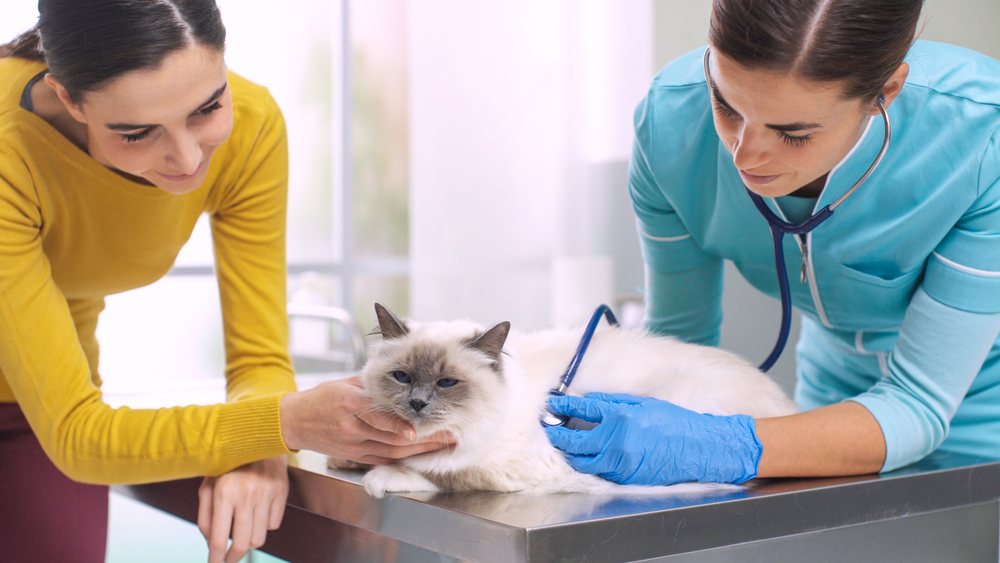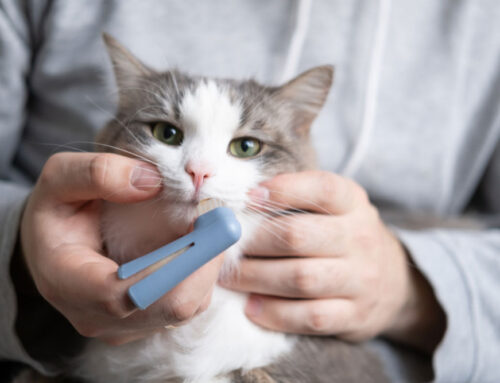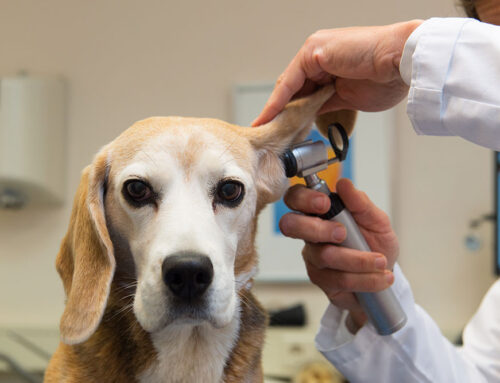The best-laid plans can go awry in the midst of panic. While we can’t help you keep a cool head, we can provide resources and tips to help prepare you for a disaster as a pet owner. Preparations for your two-legged family members can be remedied to include your four-legged member, but you must remember a few key points when planning a pet-friendly disaster strategy. If a natural or man-made emergency strikes your home, be prepared by following our five planning tips.
#1: Outfit your pet’s first aid kit with the necessary supplies
Your human first aid kit likely contains most of the critical life-saving supplies needed to stabilize your pet until you reach an emergency veterinarian, but a few items should be included specifically for pet care. When double-checking your first aid kit, ensure an ample supply of the following essentials:
- Bandage materials, including gauze, nonstick squares, padding, medical tape, and a protective wrap that won’t stick to fur
- Sterile saline
- Large syringe to flush wounds
- Antibiotic ointment
- A Benadryl dosage for your pet’s weight
- Fresh 3% hydrogen peroxide
- Milk of magnesia
- Activated charcoal
- Artificial tears ointment
- Scissors
- Thermometer
- Muzzle
Many people think a splint for a broken leg should be included in a pet first aid kit, but most splints do more harm than good, as they are easy to apply incorrectly. If your pet breaks a leg, try to limit movement, and carry your furry friend on a stretcher made from a sturdy board or blanket wrap.
#2: Pack your pet’s essentials
Create an “evac pack” that’s stocked full of vital supplies for daily pet care. In addition to your pet first aid kit, you’ll need basic necessities, such as:
- Food and water supplies for seven days
- A week’s supply of medications
- Doses of heartworm, flea, and tick preventives
- Disposable litter trays, such as aluminum roasting pans
- Litter
- Waste bags and disinfectant for cleanup
- Food and water dishes
- Extra collar or harness, with an extra leash
- A carrier or crate
- Bedding
- Toys
- Treats
- Recent photos of your pet in case you need to create “Lost” posters
When stockpiling your pet’s supplies, pack items in a waterproof, airtight container. Ensure you swap out food, water, and medications, to keep them fresh, and rotate perishables every two months. If you pack canned pet food, include a can opener, or choose cans with easy-open lids.
#3: Create an evacuation plan with your pet in mind
If a natural disaster strikes your area, and an evacuation order is issued, ensure your evacuation route is pet-friendly. Not all hotels allow pets, especially a large number of cats, or a giant, barking dog, so do your homework, and search for pet-friendly accommodations along planned evacuation routes.
A website such as Petswelcome.com can take the legwork out of looking for ideal hotels. Simply plug in your starting and ending destinations, and the hotel locator will spit out pet-friendly stops along the way. Search also for emergency veterinary hospitals and boarding facilities along your route, in case of unforeseen circumstances.
#4: Have a backup emergency plan ready for your pet
You may not always be able to reach your pet in a crisis, and will need to rely on nearby friends, family, or neighbors to get your pet to safety. Create an emergency plan to protect your pet at home, if you cannot be there. For example, If your home catches on fire while you are at work, plan for a neighbor or nearby friend to rescue your pet, leaving a house key and pet-care instructions with the trusted person.
#5: Keep your pet current on physical exams and vaccinations

A disaster may force you to board your pet without warning, and you don’t want to have to scramble, to ensure their vaccinations are current. Schedule routine wellness exams to regularly check your pet’s health, and stay up-to-date on vaccinations, and keep a stash of heartworm, flea, and tick preventives on hand. At each booster visit, print out a copy of your pet’s medical history and vaccination records, to keep with your emergency kit.
Here at Palm City Animal Medical Center, we don’t stop caring for pets at 5 p.m. If you experience an emergency situation with your pet after normal business hours, call us. A veterinary professional is always available after hours for phone consults, to help triage your pet’s situation.








Leave A Comment